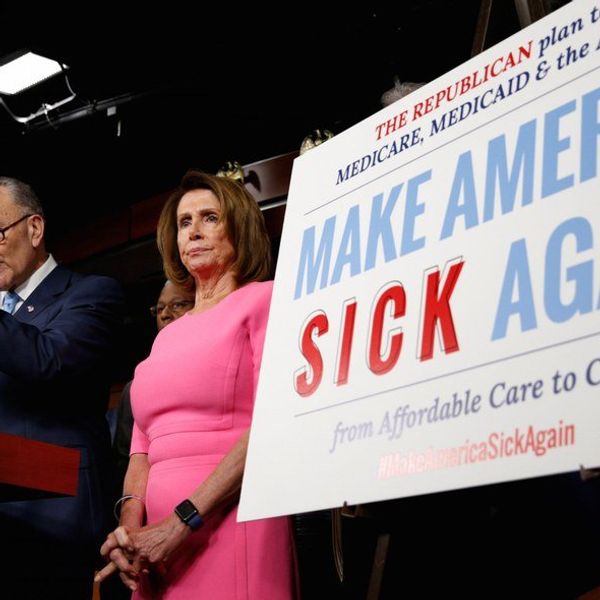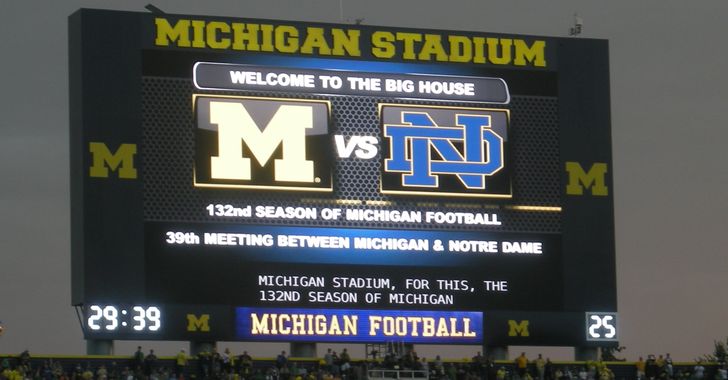On April 10, 2019, the former CEO of Starbucks — and possible Independent presidential candidate — Howard Schultz visited my hometown of Wichita, KS for a town hall. I was particularly surprised by someone like Schultz going to a town in Kansas to openly take questions that aren't previously vetted. For that, I certainly give Schultz credit. Schultz has said that he will only run if the Democrats don't choose a moderate candidate, so it's very possible he could be a spoiler to help Trump. Thankfully, I had the chance to ask him about his very anti-Medicare for all stance.
Below are the exact words of Schultz and I for you to evaluate on your own. Of course, I will splice in some of my opinions here and there.
If you're unsure of what Medicare for all is, it's a policy presented by some Democrats and Independents such as Bernie Sanders that propose to expand the current Medicare program to every American citizen to ensure that every person has the right to healthcare, including those that currently can't afford private health insurance.
Before we start, I'll say that while I certainly disagree with him on healthcare, there are a few stances I agree with such as the need for serious reform on prescription drug prices. I also think Schultz himself is a good guy that is well-meaning. Just because I disagree with him on policy does NOT mean I don't like him as a person.
Anyways, let's talk healthcare with Howard Schultz.
So recently you had quoted that you felt Medicare for all was "un-American" and "unaffordable." So, we already pay double the amount in healthcare insurance premiums compared to every other developed country, and there's also a study from the American Journal for Public Health that 45,000 people die [every year] from lack of insurance. [According to other studies] Medicare for all would actually save Americans money, as the estimated cost is $32 trillion, and Americans pay $34 trillion a year for their private health insurance. So, I'm just wondering, why do you feel that Medicare for all is "unamerican" and "unaffordable?"
Schultz: Thank you for the thoughtful question, the homework you did. I'm not gonna agree with the math. I think you're citing almost chapter-verse the Bernie Sanders Medicare for all program.
(Schultz rejected the math and studies that I have cited here. One of my pet peeves is the rejection of claims or stats without a proper or alternative explanation, which is clearly what's going on here.)
I'll also add that [the cost] was estimated by a Republican think tank study, of $32 trillion, which I would assume is somewhat inflated due to partisan politics.
Schultz: The beginning is the ACA (Affordable Care Act). It was then and was proven to be imperfect. The idea was to provide access as much as possible to 20 to 30 million Americans who do not have health insurance. Since then, two bad things have happened. Premiums have doubled, and 20 to 30 millions Americans are uninsured.
(Schultz is right. The ACA was watered down and wasn't fully what it needed to be. Its original intention was great, but compromise and the Democratic Party's inability to unite forced a very weak version of the original bill.)
Those insured under Obamacare?
Schultz: Yes, those insured under Obamacare. (...) But now we get to you. Medicare for all (...), there is a big downside to the disruption of that. The government hasn't really demonstrated running anything well, let alone a healthcare system for America.
(This is where I'm a bit concerned. The government does, in fact, run two public health systems, Medicare and Medicaid, and they're both viewed favorably by large majorities of the public. Polls also indicate a high level of support for government being responsible for healthcare coverage. It's concerning Schultz didn't realize this.)
Schultz: 180 million Americans get their insurance from their employer. The disruption is massive. (...) You've heard Bernie Sanders and Kamala Harris and other Democrats say, "We're gonna eradicate, we're gonna remove the insurance industry from America." That is what is un-American. I don't think the government has the right to eradicate an entire industry.
(The eradication of an industry is very much needed and possible when it is exploiting Americans or affecting Americans in a negative way. Take for example the banking system pre-Federal Reserve. Before the central bank was established, there was a private currency system that was different for every state bank. You had different bank notes from different states with different volatilities. To solve this, we instituted the Federal Reserve which made sure to have a central currency that could be accepted everywhere.
One could also say that the measures the government has taken against for-profit college were made to specifically take down that industry.
Plus, 180 million Americans getting insurance from their employer is irrelevant. Under "Medicare for all"... ALL have coverage.)
Schultz: So what're we going to do? Every American should have affordable access to healthcare. (...) What we need is more competition, more choice. Then, (...) I would change the corporate tax rate to 25%, then [incentivize] companies with a tax break to provide all of their employees with health insurance. (...) But, I wanna move back in and fix the ACA.
(First off, "access" is very different from actually getting healthcare. I currently have the right to purchase a Rolls Royce, but I'm not going to be able to buy one. Also, when you take into account how expensive it is to provide private healthcare for employees — way more expensive than paying them elevated wages — it would have to be an incredibly hefty tax break.
Schultz earlier in the town hall talked about compromise and working with both parties in Washington. I thought the ACA would be an excellent example to ask him about his stance on compromise in certain situations.)
I agree with you. I think the ACA is a bit of a watered-down policy. You talked about moderation and working across the aisle, I feel that the Democrats with a supermajority in the Senate worked too much with Republicans and they didn't get a good version of the ACA passed.
Schultz: You are 100% right.
So, I think moderation in that sense wouldn't be a good idea. So, are you pushing for moderation in all cases, or just a few?
Schultz: (...) It's not a question of moderation, it's a question of bipartisanship. We should not be passing bills on the basis of one party's ability to have a supermajority, we should be passing bills that are in the best interest of the country.
(While this quote sounds nice, it really is just a soundbite. This doesn't really answer my question either. It was all about the fact that even with a supermajority, Democrats compromised too much, and it hurt a very good bill that would have done a lot more good for Americans.)
Based on his responses, Howard Schultz is somewhat mum on healthcare in America. He's completely fine with private healthcare because getting rid of a broken system would "cause too much disruption." What he doesn't (or perhaps does) understand is that insurance companies are not in the business of helping people. It's about the money. He proposes to give an assumed HUGE tax credit to corporations to pay for corporation employee healthcare, as well as a rework of the ACA. There needs to be a serious change regarding healthcare in America, and that begins by giving Americans healthcare as a right, not a privilege for those who can afford it — and I don't believe Schultz is the candidate to do that.









 Photo by
Photo by 









































